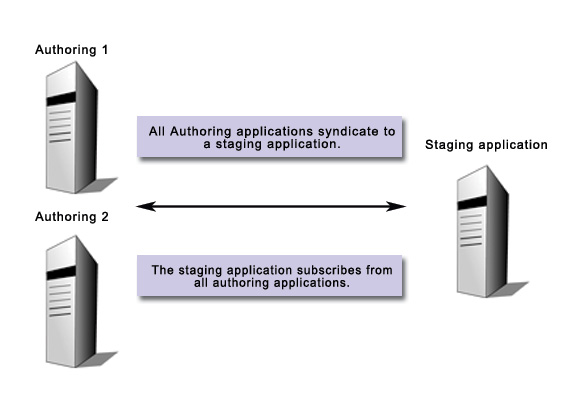Decentralized authoring
Typically a single authoring application is sufficient to manage all authoring activities in most environments. However, there might be some cases when you might want to set up a decentralized authoring environment.
For example, if you have users located in different locations it may be more efficient to install a local authoring application at each location. Two-way syndication is used between all authoring applications and the staging application. This allows changes made at all remote locations to be visible to all users.

Decentralized authoring creates the risk of conflicting updates between authoring applications. This may be managed by using different authoring applications for different sites, or different sections of a site. You could also use different authoring applications for different user roles. For example, Content creators could use a different authoring application than presentation template designers.
Access to each decentralized authoring application is controlled using a combination of Authoring Portlet access controls and Item Security settings. For example, Only users requiring access to the local Authoring application would be granted access to the local Authoring Portlet. Users would be given "Read" access to all items, but only "Edit" access to Items they are required to update. See Access and security for further information.
Syndication Syndication is used as the transport layer that replicates data from one IWWCM application to another. Clusters As it is essential that each user maintain a session with a single server, decentralized authoring applications would not be deployed in a cluster.
Parent topic:
Staging Web content to production